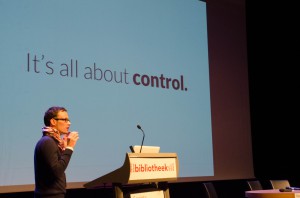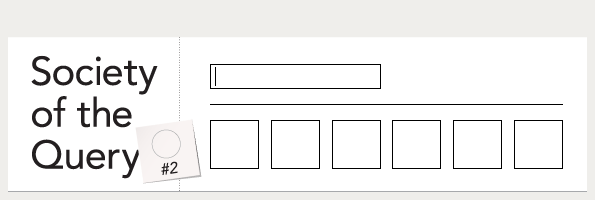Short interview with Pascal Jürgens from network cultures on Vimeo.
Pascal Jürgens, in his presentation titled Measuring Personalization — An Experimental Framework for Testing Technological Black Boxes, discussed issues surrounding control and responsibility in regard to search engine results. As search engines increasingly provide easier and easier access to content, they also hold immense power over what information users actually receive. With the ever-increasing use of personalization and prediction, search engines act as black boxed systems that control flows of knowledge.

Jürgens discusses the oscillating nature of control between positive and negative impacts. From the earliest uses of information collection by feudal kings on their subjects, there has always been a power-based aspect of knowledge, and how it is found. It is this historical nature of knowledge that led Jürgen’s to say, “It’s all new and it’s all old.” It is the new that becomes the focus of the presentation.
Jürgens raises the question of Google, and its responsibility to “not be evil.” How do the use of advanced personalization and its potential to influence users fit into this question? Jürgen’s says that “personalized search results further expand this potential because they explicitly aim at maximizing the relevance of delivered content with regard to selection decisions. Despite their relevance, these technologies have rarely been subject to social scientific scrutiny.” As a social scientist, Jürgen’s research focuses on the existence of this ‘filter bubble,’ the idea that the results we get are based on the results we want.
Jürgens determined that while results did fluctuate from one person to another, no real filter bubble appeared to exist. He went about determining this by creating multiple fake Google accounts. These accounts would have search histories created, with each having its own theme (politically left, young, old. These accounts would there query Google, and Jürgen’s would compare what results were returned. It the end he determined that the results were similar enough to disprove the existence of a more controlling filter bubble. During the Q&A session after the talk, Jurgens explained that the testing methods for his reserach need to expand, and he is planning on continuing to study the filter bubble.
Society of the Query #2 – Pascal Jürgens: Measuring Personalization from network cultures on Vimeo.


